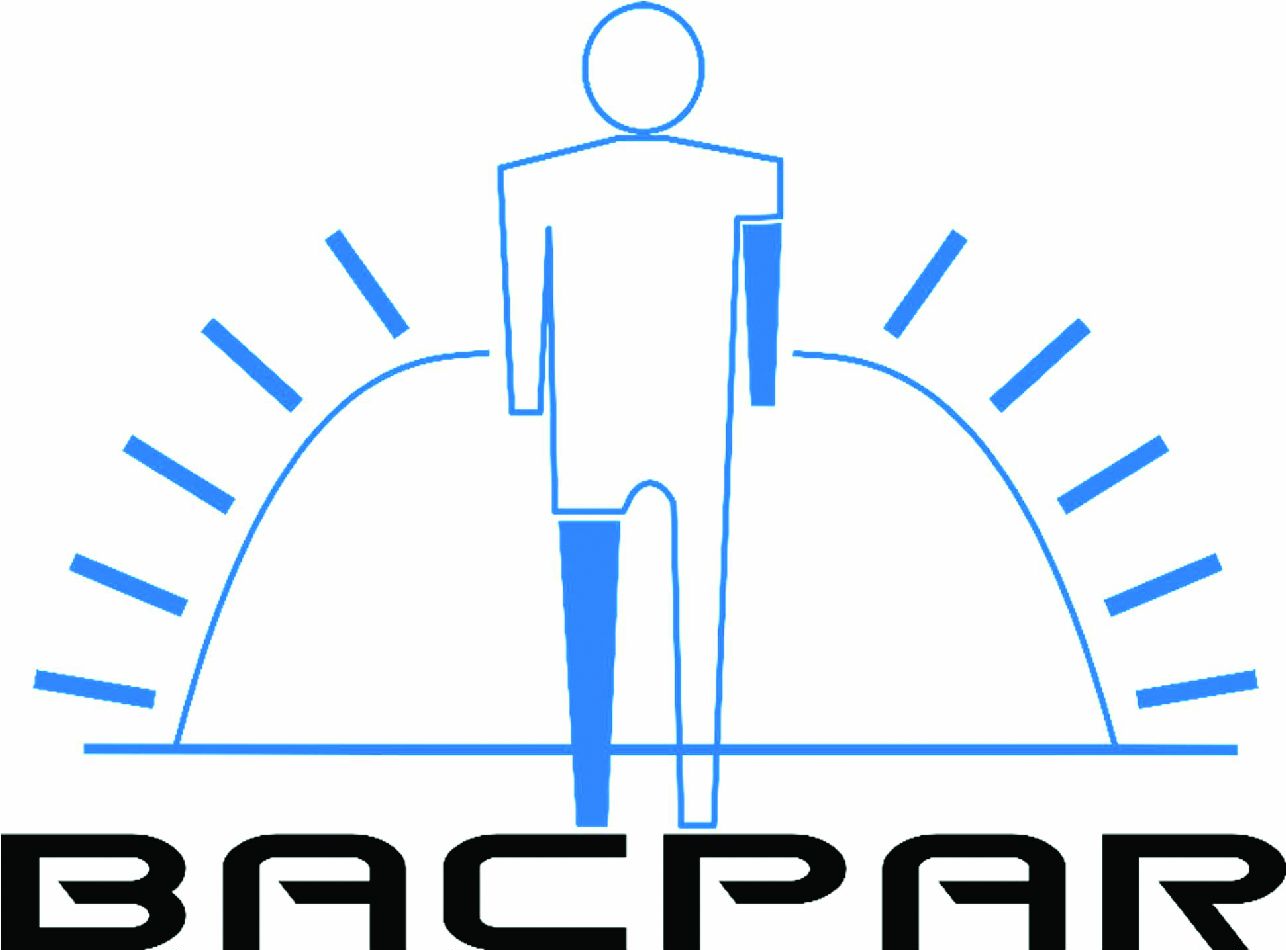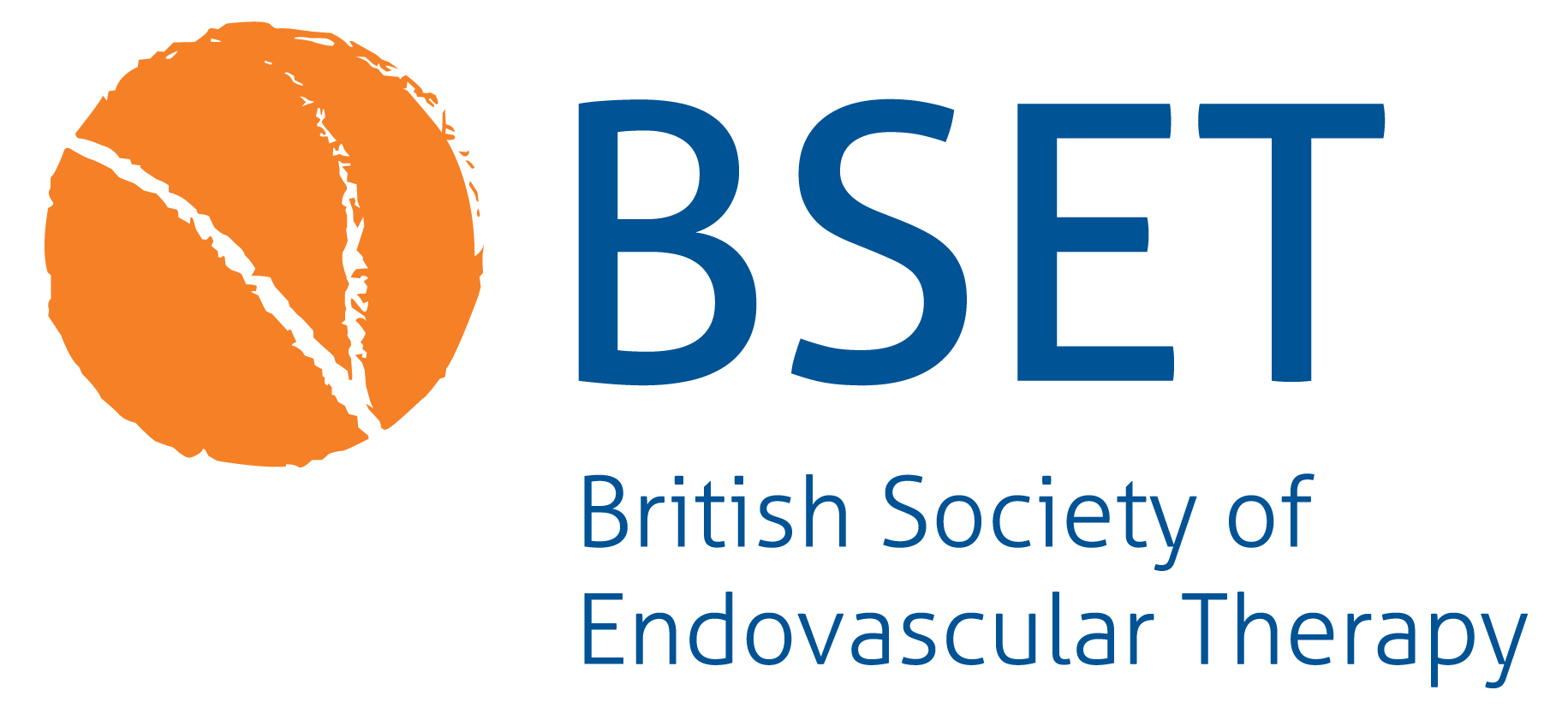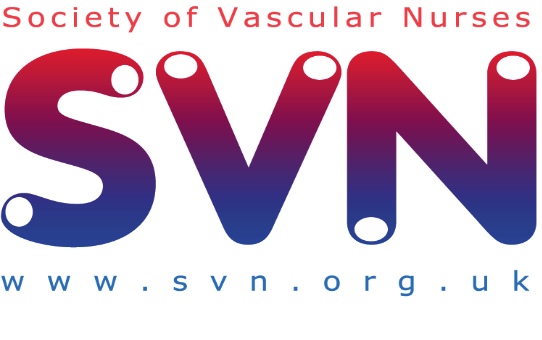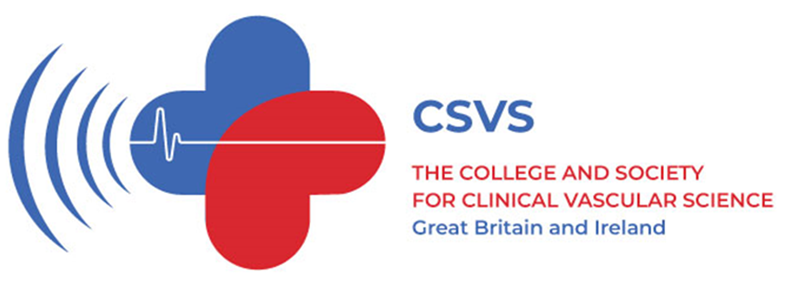EDITORIALS
Repairing the vascular surgery workforce: attract, recruit and retain
Harkin DW1
Vascular surgery manages diseases of the arteries, veins and lymphatics, and with a growing and more aged population, both the prevalence and frequency of intervention for vascular disease is increasing.1–3 Healthcare in general, and vascular surgery in particular, is experiencing acute on chronic workforce shortages which threaten the delivery of vascular services worldwide.3-5 Health systems have always had to adapt to shifting workforce pressures in a constantly changing health environment; however, the global COVID-19 pandemic and post-pandemic recovery of services have placed enormous added strain on an already overburdened health system and workforce.6 In addition, several fundamental factors continue to impact on our workforce, including workforce shortages, increased staff turnover, poor health and wellbeing, changing consumer expectations, increased medical regulation, rapid innovation, new technology, population growth and diversification, and globalisation.7,8 In the face of these challenges, if we are to continue to provide the best vascular care to those who are most in need, then we must ensure we repair our vascular surgery workforce.9 Here we discuss three main challenges facing our vascular workforce – namely, how we attract, recruit and retain the necessary workers to meet the demands of vascular disease today and for tomorrow.
Attract the right vascular workers
So how do we attract the brightest and the best in today’s highly competitive workforce environment? Vascular surgery offers the ability to practise a broad range of medical, surgical and endovascular therapies for the benefit of patients in a specialty renowned for evidence-based practice, research and technological innovation.10 However, as a largely postgraduate specialty, we must work hard to ensure prospective and current medical students and newly qualified doctors have awareness to consider vascular surgery as a career.11 Clearly, craft-based specialties remain desirable, but with increased competition from interventional medical specialties and other surgical specialties, we must work harder to ensure vascular surgery has an attractive unique selling point. Vascular surgery has been at the forefront of innovation in minimally invasive endovascular therapy, and combined with essential open surgical skills, provides a peerless range of procedural opportunities amongst surgical specialties.12 Historically, surgical specialties have lacked gender diversity, especially in senior leadership positions, so we must broaden our appeal to ensure our surgical workforce reflects society’s changing demographics, welcome diversity, and demonstrate equity of leadership opportunities.13,14 Furthermore, surgery – and healthcare in general – has tolerated a pervasive negative culture of bullying, harassment and sexual misconduct, damaging relationships between staff and teams and risking patient safety.13,15 Vascular surgery has said ‘enough’. Unprofessional behaviour will no longer be tolerated within our specialty, and through a process of open disclosure and robust actions our specialty has perhaps done more than any other surgical specialty to reform.16 Vascular surgery is a growing innovative procedural specialty with values of caring, fairness and inclusivity at its core, and that is what makes it attractive.
Recruiting new talent
So how do we recruit the new talent we require? Vascular surgery has a significant workforce deficit, both in training and independent practice, and we need to increase recruitment at all levels.4,5 Over the last decade our specialty has established selection, curriculum and competency-based training programmes, the ASPIRE educational programme, and a robust exit examination. We have embraced academic, flexible and run-through training, and through cogent appeal to commissioners, have doubled our national training numbers in the UK.3,5 However, surgery is a challenging career, both physically and mentally, and if we are to attract new surgeons we must ensure we reconnect with our mission and purpose, the values that drew us to a caring profession and purpose that attracted us to surgery, our desire to do meaningful work, and to feel that our effort and sacrifice is recognised and appreciated. Clearly, we can offer purpose. We cater for an important and growing range of conditions, vascular diseases, and we have the privilege of providing treatment to alleviate some of the most disabling and life-threatening conditions. We need to ensure our new vascular surgeons have all the knowledge, skills and behaviours necessary to care for vascular patients within a supportive team environment which recognises peoples’ strengths and limitations and supports them through the many different phases of a surgeon’s career.9,17 We must support upskilling programmes and on-the-job training opportunities to expand the care we provide whilst ensuring quality and safety is maintained for our patients with a collaborative approach to accreditation and governance.18 Vascular surgeons, like the blood vessels we treat, have always criss-crossed traditional specialty boundaries for the care of their patients, and are strong proponents of the benefits of working in the multidisciplinary team.18 Recognising the synergy of knowledge and skills our colleagues bring to benefit vascular patients, we have supported the development of enhanced roles for our vascular nurses, vascular technologists, vascular anaesthesiologists, vascular physicians and many more. Vascular surgery will then provide purpose, support, opportunity and a clear pathway from recruitment to practice.
Retaining valuable recruits
So how do we retain the valuable knowledge, skills and experience of our recruits throughout a long and challenging career? Surgeons, as all healthcare workers, have a challenging and demanding job, and for many the chronic stress of their work can lead to harmful effects on their mental and physical health. We see growing numbers of surgeons reporting stress and even burnout, a state of mental and physical exhaustion, and this leads to reduced efficiency, periods of sickness leave and even causes some to exit the profession.7,8 We need to do more to support workers, garner appropriate staffing, encourage and support self-care, ensure workers’ voices are heard, and make sure workplace environments and work plans are safe so that our workforce remains satisfied and healthy.19 In a rapidly changing and evolving healthcare environment, many – and especially those at either extreme of their career journey – can feel confused and lack confidence. We need to make sure we keep that promise of a commitment to life-long learning and ensure ample opportunity is given to attain and acquire new knowledge and skills to maintain and retain competence through education, coaching and mentorship.20 Increasingly, it is recognised that vascular surgery across a long career, with lengthy complex cases, emergency care, long hours and disrupted sleep patterns, poses very specific physical and mental risks to the body. Many surgeons have reported work-related physical pain and mental distress, burnout and even post-traumatic stress disorder, and for some that is career shortening.8,21 We need to recognise these demands and adjust work patterns, especially in those vulnerable and those in later career, to ensure unreasonable demands are not being made, including the release of some surgeons from on-call rotas and emergency care.22 Furthermore, until recently the pension taxation regime had unintentionally penalised senior surgeons, precipitating a wave of early retirements, and we welcome recent beneficial change to that. Vascular surgery must create a supportive environment and sustainable work/life balance, recognising both individual and service needs, so staff are not only retained but can thrive throughout their career.
Conclusion
In conclusion, the vascular surgery workforce can be repaired, but to do so it must become more attractive, more inclusive and diverse, and retain its most valuable experience. We need to advocate for better vascular services for our patients and staff at individual, organisational and community level. Together, we can address workforce supply, strengthen workforce resilience and ensure we continue to deliver the best possible vascular care to the communities we serve.
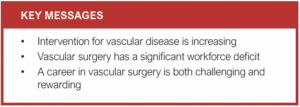
Article DOI:
Journal Reference:
J.Vasc.Soc.G.B.Irel. 2023;2(4):194-196
Publication date:
July 4, 2023
Author Affiliations:
1. Consultant Vascular Surgeon, Belfast Health and Social Care Trust; Chair of Medical Professionalism, Royal College of Surgeons in Ireland; Chair Elect, Audit and Quality Improvement Committee, Vascular Society of Great Britain and Ireland
Corresponding author:
Professor Denis W Harkin
Consultant Vascular Surgeon
& Chair of Medical
Professionalism, Faculty of
Medicine and Health Sciences, 123 St Stephen’s Green,
Dublin 2, Ireland
Email: [email protected]

